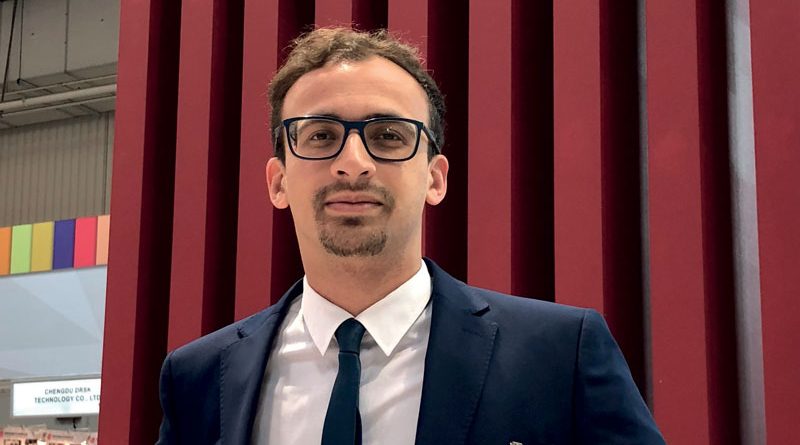The Key Challenges for the European Power Transmission Industry
InMotion interviewed Mr Haffar Salim and Mr. Andre Thuswaldner, EUROTRANS president and vice-president respectively, to discuss about current trends and 2021 forecasts of the European Power Transmission industry. If 2020 was a difficult year without any doubt, a recovery is expected for the current year. Digitization and sustainability are two key challenges for companies to stay focused on. The great potential of AI needs to be exploited in the best possible way too.
EUROTRANS is an organization that represents the interests of the European power transmission industry. It informs and supports more than 600 enterprises within Europe, which accounts for an annual production of more than 40 billion Euro. Europe is the leading region worldwide in terms of innovation and experience in the power Transmission sector. Companies in this industry employ no less than 160,000 people.
IM: In 2020 the European power transmission industry, just as many other industrial sectors, suffered from the Coronavirus pandemic, with a double-digit drop in terms of total index. Is a recovery expected for the current year?
Haffar Salim: We can all agree that 2020 was a difficult year for all of us, on a personal and professional perspective we had to re-adapt our lifestyle, habits and way of working. This had a clear impact on a majority of industries and sectors; drop of productivity, empty order books and turnover drop at the end of the year. Yet as the vaccine campaigns have started in most countries, we can see the premises of a recovery. As per the EUROTRANS previsions, we can now expect a recovery between 5-10% for the current year, but a full recovery will take several years because for some European companies the drop had already started in 2019. One good news is, we have left the bottom behind us, but big challenges lay ahead of us, the global COVID-19 pandemic, regional lockdowns, travel restrictions for service personnel, disruptive global supply chains and the shortage of electrical components. The cost pressure in the mechanical engineering industry is also dramatically increasing. Key materials used by a majority of our members faced important increases on the past few months, and this trend is set to last for steel, copper and aluminium.
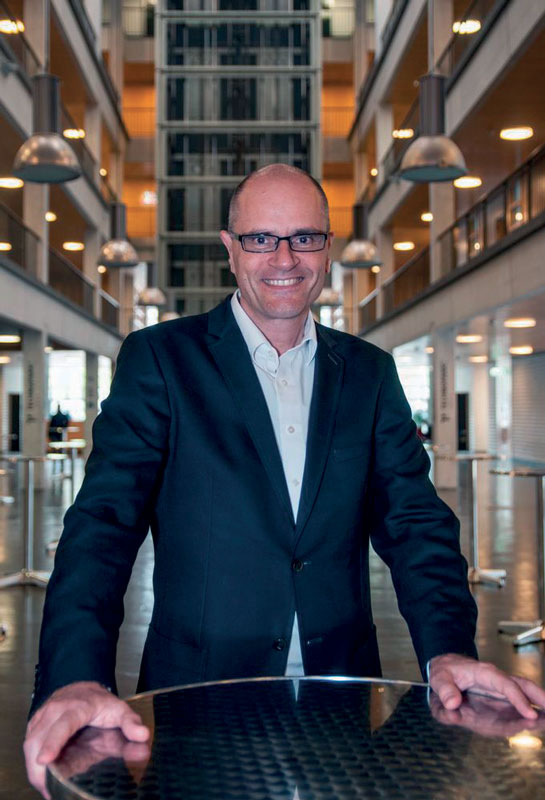
IM: Which sectors, more than others, are likely to contribute to a potential recovery?
Haffar Salim: With a quick capacity to adapt, market evolutions and new trends, some industries have shown a better resistance to the COVID-19 pandemic and will drive the future recovery. The green energy industry and more particularly the wind industry targets good results for 2021. Agricultural machinery and the food processing sectors are also adding a boost to the power transmission sectors, the COVID-19 pandemic and empty supermarkets shelves have shown the importance of food supplies, local production and capacity to stock. Small and middle-sized agrofood companies are increasing their production capacity and modernize their process. This growth combined with a renewed importance for hygiene and protection are having a direct impact on the packaging industry, the sector is set to register a positive growth in 2021. The electrical engineering and automation industries will also step ahead and bring a positive dynamic to the power transmission industry.
IM: As newly elected President of EUROTRANS, you said that digitization and sustainability are the two key challenges for companies in the power transmission industry. How important is it for companies to master them?
Haffar Salim: Digitization and sustainability are two challenges that concern the entire value chain of our company members. Process, production, products and interaction with customers are directly impacted by a growing need for digital, environmentally friendly and now COVID-free solutions. Many companies have already shown a great adaptability and started a deep transformation in the previous year, those who started this transformation earlier have also shown a better adaptability to the COVID context and remote work. EUROTRANS sees this transformation not as a challenge but more as an opportunity for European companies to create new streams of revenues, add value to their products and create an extra selling point in a highly competitive market. EUROTRANS is also actively acting in that direction keeping its members informed about new trends, technologies and standards linked to digitization.
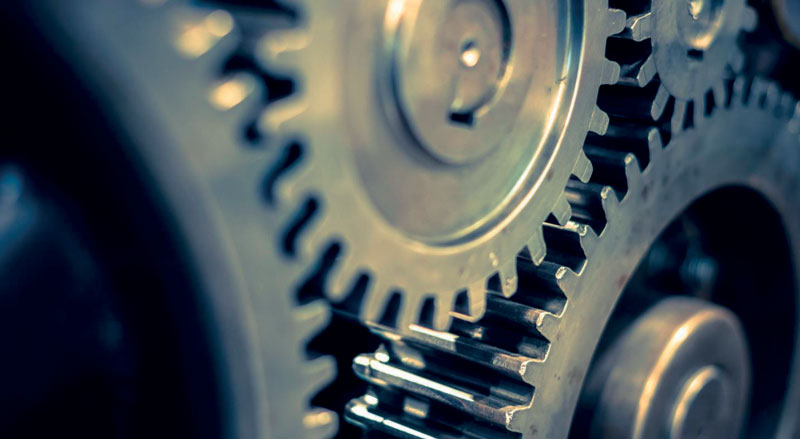
IM: The European power transmission industry, with its know-how in terms of innovation and cutting-edge technologies, is a major player in the global market. How can an association like EUROTRANS, highlight its strengths and increase its visibility worldwide?
Andre Thuswaldner: EUROTRANS is based on the idea of joined forces. Together with our national associations we offer an excellent networking platform to share and exchange the latest developments in our industry, be it new EU regulations on the SCIP database, standardizations, market data, just to name a few. One of our spotlights are the international drive technology meetings which take place every two years on the occasion of the Hannover Messe. The drive technology meetings offer a great opportunity to meet with your peers and get up-dated on the latest innovations from renowned experts in an international setting. Another key expertise of EUROTRANS is the successful EUROTRANS trainings. Originally created to attract young professionals into the industry, they became popular among engineering professionals from all backgrounds because the trainings offer high quality, concentrated know how from experts who share their knowledge of power transmission engineering in just a few sessions. We are now offering online trainings with the same quality and excellence, reaching a broader audience and this way also increasing the visibility of EUROTRANS.
IM: What impact is the general cost pressure in terms of raw material / supply chain and, in particular, the products? having on the power transmission industry?
Andre Thuswaldner: The recent increase of the raw material used by our members and the industry in general is a real challenge for the upcoming year. This is a situation along the whole value chain. These effects show how weak the global supply chain is and the importance to increase adaptability and flexibility. We recognize the great potential of Artificial Intelligence (AI) that could support us in reacting more flexible and faster on unexpected events in the future. The power transmission industry is continuously working on adapting and optimizing the process structure.
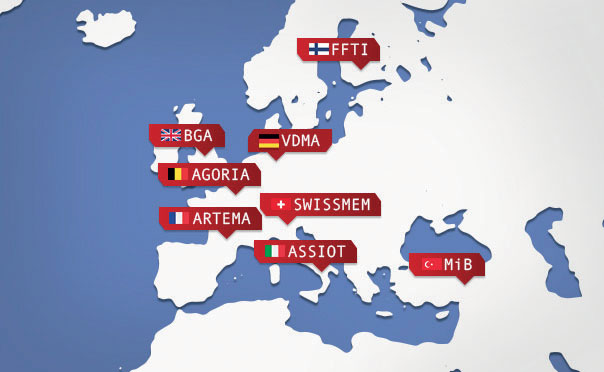
IM: Let’s talk about technology. Several trends spur innovations in drive engineering, where energy saving in production and mobility reveals to be the first one of the main requirements of the future. Electric drives enable a “power on demand” strategy. What are your thoughts on this trend?
Andre Thuswaldner: The big global challenges – Digitisation, Decarbonisation, Sustainability, New Mobility – ask for completely new solutions. New platforms along the value chain or pay-for-use business models push our industry to think in new directions. The European power transmission engineering sector is a solution provider. It is facing these challenges by setting new technology standards. One of the key trends is the intelligent networking of mechanical and electrical drive trains, allowing the plant to run with minimized power consumption in all operating conditions. A further trend is the increasing application of recyclable materials.
